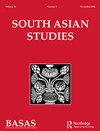“I Curse You on Her Behalf” Narratives of Sexual Assault from Sanskrit Literature
IF 0.7
0 ASIAN STUDIES
引用次数: 0
Abstract
The classical Sanskrit texts composed in early India are one of the most celebrated texts from South Asia. The Rāmāyaṇa, the Mahābhārata, and the Purāṇas are an integral part of socio-cultural, and now political life of contemporary India. Texts composed in classical Sanskrit are assumed to represent an unblemished civilization, with a righteous rule and unadulterated social harmony; this is especially true about their afterlives as depicted in popular culture, cinema, and art. Often, during arguments about the safety of women in India calls are made for “going back to the ethos of ancient India culture”. This is done based on false beliefs about narratives presented in the classical Sanskrit text especially assumptions that women were “safer” in ancient India and that evils like rape, sexual assault and harassment of women did not exist. In contrast, this essay takes a closer look at the Sanskrit text, which not only narrates numerous stories of rape, but also considered rape a criminal offence.“我代表她诅咒你”——梵文文学中的性侵叙事
早期印度的古典梵语文本是南亚最著名的文本之一。Rāmāyaṇa, Mahābhārata和Purāṇas是当代印度社会文化和政治生活的组成部分。用古典梵文撰写的文本被认为代表了一个完美的文明,具有正义的统治和纯粹的社会和谐;在流行文化、电影和艺术中所描绘的他们的来世尤其如此。在关于印度女性安全的争论中,人们常常呼吁“回归古印度文化的精神”。这是基于对古典梵文文本中所呈现的叙述的错误信念,特别是假设女性在古印度“更安全”,并且不存在强奸、性侵犯和骚扰女性等罪恶。相比之下,本文更仔细地研究了梵文文本,它不仅叙述了许多强奸的故事,而且还认为强奸是一种刑事犯罪。
本文章由计算机程序翻译,如有差异,请以英文原文为准。
求助全文
约1分钟内获得全文
求助全文

 求助内容:
求助内容: 应助结果提醒方式:
应助结果提醒方式:


